Jake Buehler
Jake Buehler is a freelance science writer, covering natural history, wildlife conservation and Earth's splendid biodiversity, from salamanders to sequoias. He has a master's degree in zoology from the University of Hawaii at Manoa.

Trustworthy journalism comes at a price.
Scientists and journalists share a core belief in questioning, observing and verifying to reach the truth. Science News reports on crucial research and discovery across science disciplines. We need your financial support to make it happen – every contribution makes a difference.
All Stories by Jake Buehler
-
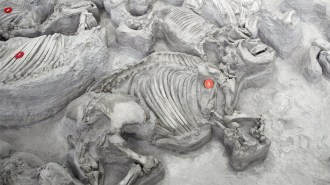 Paleontology
PaleontologyAncient, water-loving rhinos gathered in big, hippolike herds
Squat rhinos lived in North America about 12 million years ago, congregating in huge, water-bound herds much like modern hippos.
-
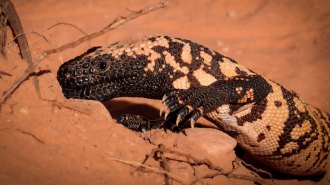 Life
LifeGila monsters may struggle to survive climate change
The Mojave Desert may lose and gain suitable habitat for Gila monsters. But the unathletic reptiles might be mostly stuck in the waning oases.
-
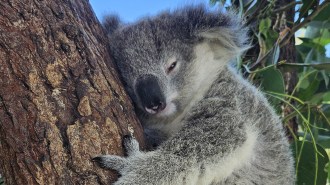 Animals
AnimalsSome of Sydney’s koalas are chlamydia-free, but still at risk
Southwestern Sydney's koalas have avoided the chlamydia outbreak threatening the entire species. But their isolation has left them extremely inbred.
-
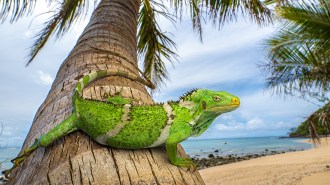 Animals
AnimalsThe mystery of how iguanas crossed the Pacific Ocean may be solved
The iguanas' 8,000-kilometer trip — one-fifth of the Earth’s circumference — is the longest made by a flightless land vertebrate.
-
 Life
LifeDark coats may have helped the earliest mammals hide from hungry dinosaurs
During the age of dinosaurs, early mammals probably lacked the stripes and spots of their modern relatives, having uniformly dark, drab coats.
-
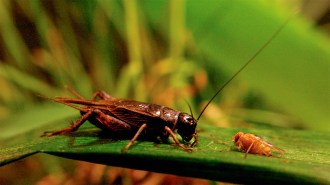 Animals
AnimalsCrickets and flies face off in a quiet evolutionary battle
Male crickets in Hawaii softened their chirps once parasitic flies started hunting them. Now, it seems, the flies are homing in on the new tunes.
-
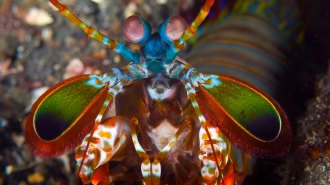 Animals
AnimalsHow mantis shrimp deliver punishing blows without hurting themselves
A mantis shrimp's punch creates high-energy waves. Its exoskeleton is designed to absorb that energy, preventing cracking and tissue damage.
-
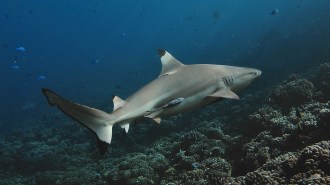 Animals
AnimalsFeeding sharks ‘junk food’ takes a toll on their health
Many blacktip reef sharks in French Polynesia are commonly fed by tourists. But the low-quality diet is changing the sharks’ behavior and physiology.
-
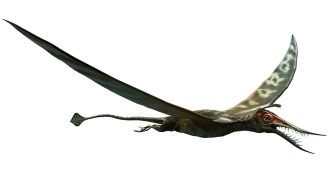 Paleontology
PaleontologyA mysteriously large pterosaur finally has an identity
A Jurassic pterosaur fossil, known to paleontologists for over 160 years, isn’t a new species. It is an odd specimen of Rhamphorhynchus muensteri.
-
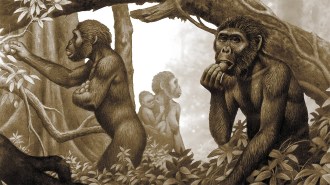 Life
LifeEarly human ancestors didn’t regularly eat meat
Chemicals in the tooth enamel of Australopithecus suggest the early human ancestors ate very little meat, dining on vegetation instead.
-
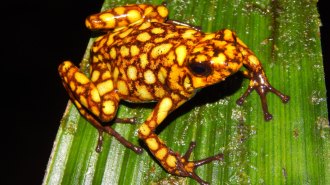 Life
LifeToxin-gobbling bacteria may live on poison dart frog skin
Toxins on poison dart frog skin mold the skin's microbial community, boosting species variety and potentially even feeding some daredevil bacteria.
-
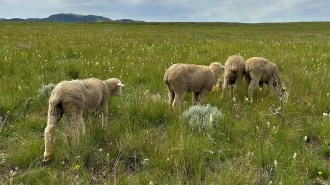 Life
LifeSheep earwax can record a dangerous diet
Sheep that eat death camas plants record the toxic meal in their earwax, a goopy health data repository that researchers are increasingly exploring.